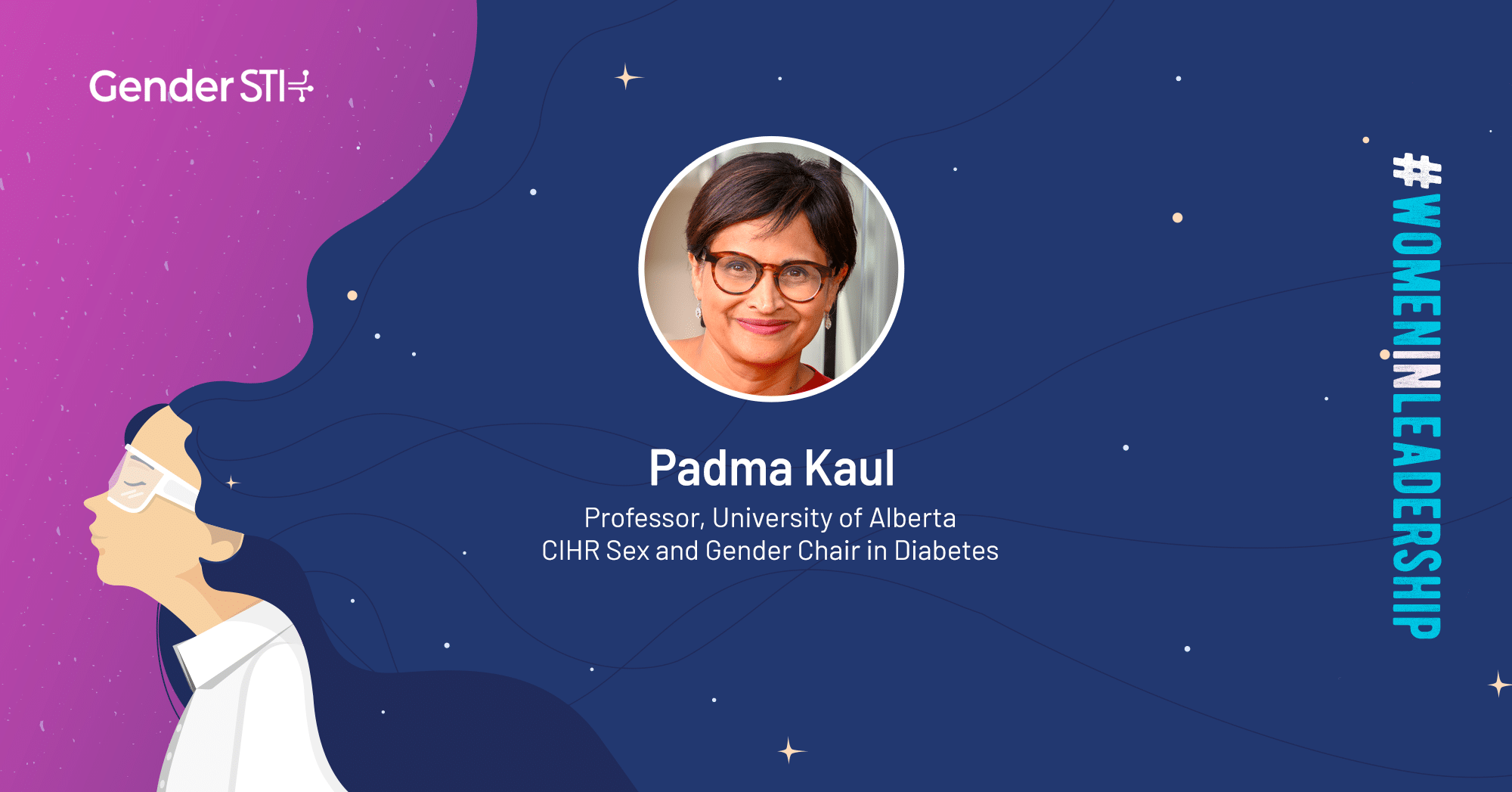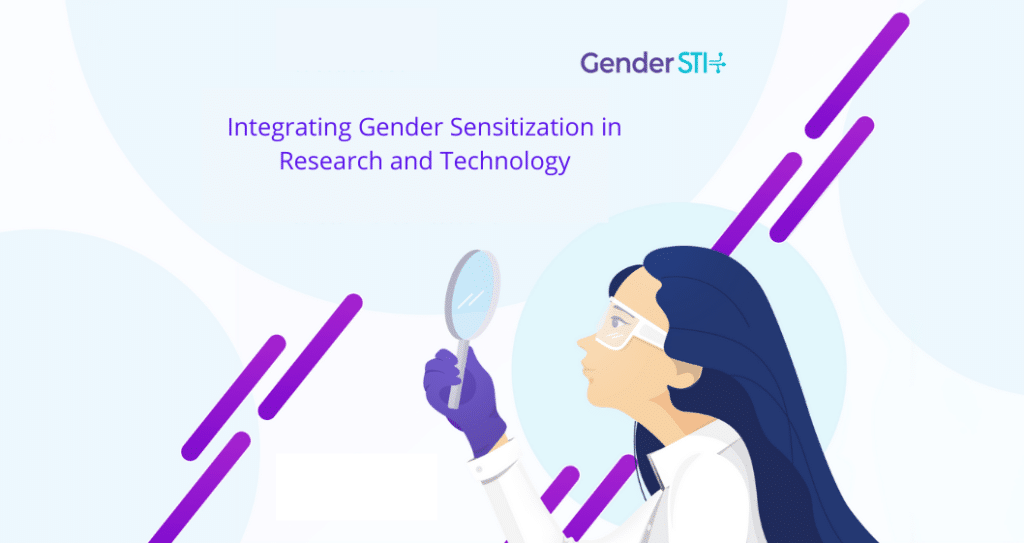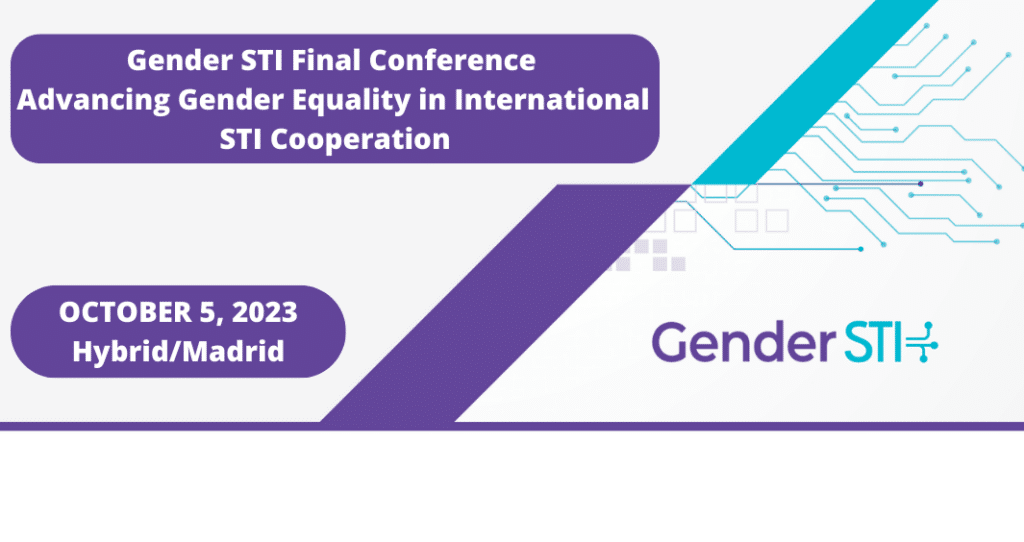Padma Kaul was nominated for Gender STI's #WomenInLeadership Campaign, which celebrates women leaders in science, technology and innovation, by the Canadian Institutes of Health Research’s (CIHR) Institute of Gender and Health.
She is a professor at the University of Alberta, an adjunct professor at Duke University and the co-director of the Canadian VIGOUR Centre. Kaul is the CIHR Sex and Gender Chair in Diabetes and the Heart & Stroke Chair in Cardiovascular Research. Kaul’s research examines issues involving access and delivery of cardiovascular care at a population level; examining international differences in cardiovascular practice patterns and outcomes; and health economics. One of her primary interests is looking at the burden of heart disease in women relative to men.
Kaul spoke to Gender STI about her experience as a woman leader in honor of International Women's Day 2021.
Can you tell us a bit about your job and your responsibilities?
I am a Professor in the Department of Medicine, Co-Director of the Canadian VIGOUR Centre, at the University of Alberta. I am an epidemiologist and policy analyst by training, and I spend a majority of my time on research activities focused on diabetes and heart disease. I spend a lot of time working with data, looking at who is getting the disease, what kind of care they are receiving, and how their disease is progressing.
Did you face any challenges on your journey to become a woman leader? How did you overcome them?
Competing demands are a major challenge. For example, the time period during which I had to meet the requirements to succeed at an academic career (i.e., promotion from Assistant Professor, to Associate Professor, to Full Professor) coincided with the time demands imposed by two young children. Priority setting, time management, and persevering despite some failures. Leadership requires tenacity!
What goals do you have as a leader?
My goal is to provide the infrastructure and multidisciplinary team environment to the next generation of researchers, especially young women, interested in metabolic and cardiovascular health outcomes.
How would you describe the gender balance in decision-making in science, technology and innovation (STI)?
It is currently highly skewed in favour of men. This is particularly true in health fields, where support roles are dominated by women (nurse coordinators, research managers, etc.) but women are underrepresented in leadership roles. However, I hope that this is changing.
What would you tell young girls and women who would like to become leaders in their professional fields one day?
I would say to young girls what I say to my two teenage daughters: do well in math, pursue science subjects (physics, chemistry, biology, computer science) in high school and beyond.
To young women starting their professional careers, I would tell them to find good mentors and role models; to be persistent in their efforts and not be disheartened if they are not successful at first.
As you may know, the Gender STI project focuses on promoting gender equality in international cooperation in STI. Do you have any ideas on how we could promote gender equality in this area?
Developing opportunities that are specifically tailored for women would be one way. Successful programs such as the collaboration between the European Society of Cardiology and the Oxford Women Transforming Leadership Programme can be useful as templates.
What do you think needs to be done to increase the number of women leaders in STI?
I could write a whole paper on this. We need to start early… expose young school aged girls to female role models who are successful in STI; organizations must make a commitment to actively support the hiring, mentoring, and promoting of women in STI.
Follow Gender STI’s #WomenInLeadership campaign on Twitter, LinkedIn and Facebook for more great interviews. Join the conversation using #WomenInLeadership, #IWD2021 and #GenderSTI.



